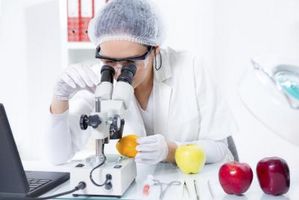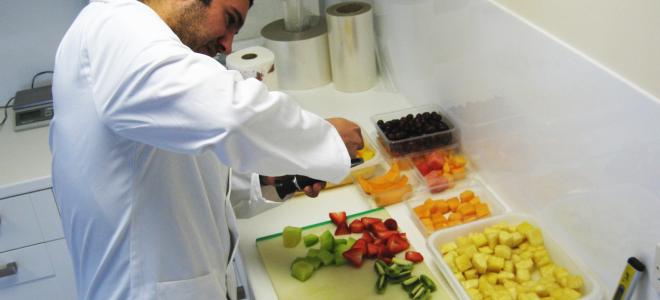Careers in Science: Food Technologist

What Does A Food Technologist Do?
Food technologists make sure food products are produced safely, legally and are of the quality claimed. They can be involved in developing the manufacturing processes and recipes of food and drink products and may work on existing and newly discovered ingredients to invent new recipes and concepts. Technologists modify foods to create products such as fat-free items and ready meals. They often work closely with the product development teams to help deliver factory ready recipes based on the development kitchen samples.
Food Science
Food science draws from many disciplines such as biology, chemical engineering, and biochemistry in an attempt to better understand food processes and ultimately improve food products for the general public. As the stewards of the field, food scientists study the physical, microbiological, and chemical makeup of food. By applying their findings, they are responsible for developing the safe, nutritious foods and innovative packaging that line supermarket shelves everywhere.
Food Technology
The food you consume on a daily basis is the result of extensive food research, a systematic investigation into a variety of foods’ properties and compositions. After the initial stages of research and development comes the mass production of food products using principles of food technology.
What Are The Duties Of A Food Technologist?
Tasks and duties may include:
• Modifying existing products and processes and developing new ones;
• Checking and improving safety and quality control procedures in your own and suppliers’ factories, from the raw material stage through to the finished product;
• Researching current consumer markets and latest technologies to develop new product concepts;
• Selecting raw materials and other ingredients from suppliers;
• Preparing product costing based on raw materials and manufacturing costs to ensure profitable products;
• Auditing suppliers or managing internal audits;
• Coordinating launches of new products or running trials alongside/together with product development;
• Dealing with any customer complaint investigations or product issues;
• Compiling/checking/approving product specifications and labelling;
• Undertaking long-term projects with other departments, e.g. reducing waste by improving efficiency;
• Working on packaging innovation and technology
How Much Does A Food Technologist Get Paid?
A food technologist is primarily employed in food processing facilities, university research departments or government agencies and departments averages an annual salary of R60 000 at entry level up to an estimated R144 000 to R300 000 per annum depending on experience.
What Are The Education And Training Requirements?
To become a food technologist a good bachelor’s degree in an appropriate subject is normally necessary, such as food science/technology, food/chemical engineering, biochemistry, nutrition, microbiology or chemistry. Possession of a food-related postgraduate qualification can be beneficial, particularly for candidates without a relevant first degree. Job shadowing, networking and vacation placements can be helpful, and candidates possessing food industry work experience are often at an advantage. Experience can be gained via food production line employment or by working as a technician.
What Are The Skills And Personal Traits Of A Food Technologist?
Your education coupled with the following skills will make you the best in the industry:
• Interested in science
• Passionate about food production
• Responsible
• Detail orientated
• Methodical
• Patient





